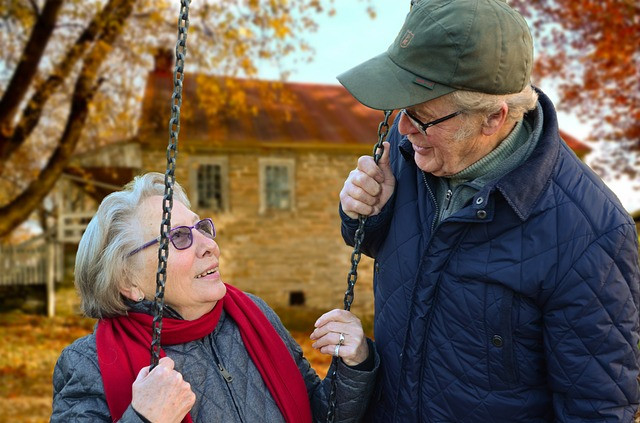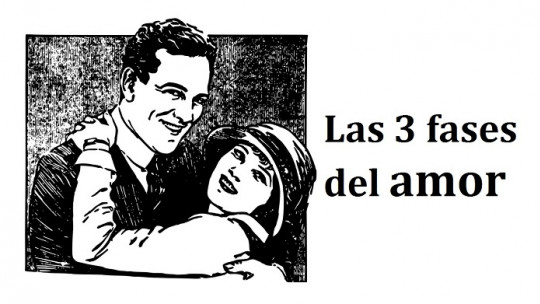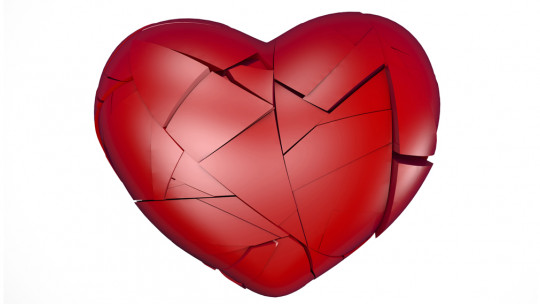Do you love your partner but you no longer feel like the first day? Do you notice that the feeling you feel towards your partner has been changing over time? They are completely normal sensations that describe changes in the way we feel and interpret what a relationship means to us.
This happens because
couples’ love has different phases and stages , all of them with their defining characteristics. If in the article “The 5 phases to overcome the grief of the breakup of a relationship” we talked about the stages of heartbreak, in this text we will discuss the different phases of love.
Love also evolves
It is important to highlight that, although this is a phenomenon that has aroused much interest among psychology professionals, there are discrepancies about the number of phases of love and the characteristics that define them.
However,
according to psychologist John Gottman author of the book Principa Amoris: The New Science of Loveromantic love has three well-differentiated phases that appear sequentially, in the same way that people are born, grow and age.
Their research has shown that love is a complex experience, and has served to identify some stages of the couple’s life in which love can deteriorate or continue to evolve forward. until you reach the deepest form of emotional bond
Recommended article: “The 100 best phrases about love and romance”
The stages of love: limerence, romantic love and mature love
What are these stages of love? What characteristics do they have? Below you can see them described and explained.
Phase 1: Limerence
This stage is also called the falling in love or lust phase , and it is the phase in which we are most excited and eager to see the other person. The feelings and emotions of lovers have to do with euphoria and rapid changes in mood.
The term “limerence”
was coined by Dorothy Tennov , and according to this, the characteristic symptoms of this stage are some physical changes such as redness, tremors or palpitations; excitement and nervousness, intrusive thinking, obsession, fantasy thoughts and the fear of rejection.
Falling in love is something exceptional
In the book The Alchemy of Love and Lust, the Dr. Theresa Crenshaw explains that not everyone can trigger the cascade of hormones and neurotransmitters that accompanies the exciting first phase of love. But when falling in love occurs, then, and only then, does the neurochemical cascade of falling in love explode, changing our perception of the world.
The psychologist and communication director of the magazine
Psychology and Mind Jonathan García-Allen, in his article “The chemistry of love: a very powerful drug”, explains that “in this phase the brain releases large amounts of dopamine, serotonin or norepinephrine, which is why when we fall in love we feel excited, full of energy and our perception of life is magnificent. Exactly the same as if we consume psychoactive substances.”
In short, when we fall in love, our brain secretes :
This abrupt change in generation and hormones and neurotransmitters makes us tend to be less emotionally stable, at least for a time and, specifically, when we think about the other person or feel them close.
Phase 2: Romantic love (building trust)
Questions that may arise during this phase are: “will you be there for me?” “I can trust in you?” “Can I count on you for the good times and the bad?” These are some of the reflections we make to know if we want to continue with that person who has made us feel so much and if we are really with the right person for this long journey of love.
When we cannot answer these questions positively,
Conflicts arise again and again and can seriously erode the relationship The answers to these questions are the basis of secure or insecure attachment to the relationship.
A challenge for managing emotions
Therefore, it is common for crises to exist at this stage Getting out of them successfully means growth in the relationship and the strengthening of emotional ties. On the other hand, if doubts are confirmed, frustration, disappointment, sadness and anger may appear.
These crises can appear around 2 or 3 years old and, in many cases, the result of these fights is determined by the members’ negotiation and communication skills.
Developing or building trust is based on taking into account the needs of the other member of the couple as well. This is achieved:
Recommended article: “The 7 keys to having a healthy relationship”
Phase 3: Mature love (building commitment and loyalty)
If the couple manages to overcome the previous stage, they reach the phase of union or mature love This stage is characterized by the construction of a real and loyal commitment. This is the stage of deepest trust, in which more rational decisions are made. That is, there is a deeper appreciation of the other person and there is a union that predominates over the emotional torrent and turmoil of the beginning of the relationship.
At this stage, calm and peace are valued more, and the other person becomes a point of support.
More importance is given to attachment, tenderness, deep affection, and love then reaches another level

Consolidating the stable relationship
At this stage, love is fueled by understanding and respect on the part of both members of the couple In some way, love begins to be experienced in a less individualistic way, thinking of the couple as a unit that is more than the sum of its parts.
The emotional bond is not as obsessive as in the first phase and gives way to free love, based on communication, dialogue and negotiation. In this phase, it is very rare for communication problems to appear that were not present before, unless they are due to a specific and easy to identify fact that breaks the health of the relationship.
To reach this phase, we must keep in mind that love is not born, it is built over time and is constantly cared for. The simple passage of time does not make us reach the last of the main phases of love ; For example, it could cause the emotional bond to deteriorate if attention is stopped.
Do you want to know more about mature love? This article may interest you: “Mature love: why is the second love better than the first?”









